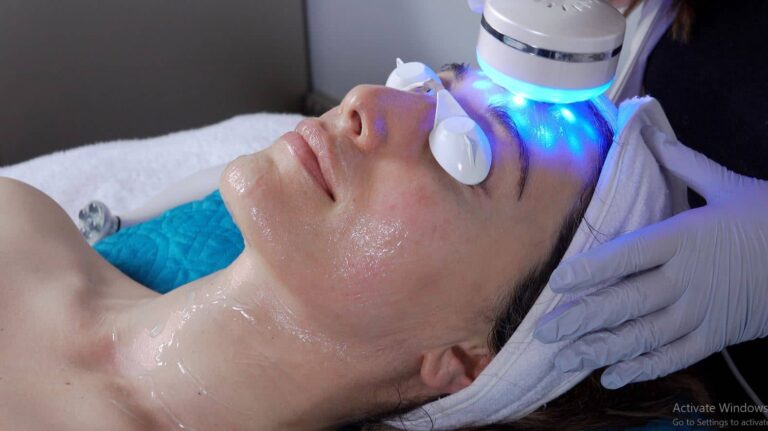How the Pandemic Has Worsened Social Anxiety Levels
Over the past eighteen months, the world has dealt with a global pandemic that has made some significant and often lasting changes to the world as we know it. Things are unlikely to ever be exactly the same again from more hand sanitizing stations in grocery stores to more people planning to work from home permanently in the future.

During this period, many of us have gotten used to this new way of living. For some people, it has been a nightmare situation due to the loss of loved ones, job losses, financial difficulty, and the fear of catching COVID19 or passing it on to a vulnerable family member. For others, it’s been easier for them to get by during the COVID19 pandemic due to working remotely, but they have also suffered in other ways including being unable to get out and do the things that they would enjoy the most and suffering from isolation due to staying at home and being unable to spend time with family and friends outside of their immediate household. Others have been working in essential jobs throughout the pandemic and are suffering from exhaustion and burnout as a result.
Most of us by now have gotten used to this situation in some way or another. After eighteen months of doing things differently, we have begun to adjust to a new normal – and now things are set to change once again.
With the vaccination program, a success and a huge percentage of the population now having had both doses of the COVID19 vaccine, more and more employers are beginning to ask employees to come back to working in the office and things are beginning to open up, giving us more chances to get out and spend time with family and friends or meet new people once again. But for some people, this has been the start of a new problem – social anxiety.
After spending so much time at home and mainly isolated from the rest of the world, some of us feel like we’ve forgotten how life was before the pandemic and are finding the idea of adjusting to changes once again quite scary.
What is Social Anxiety?
Social anxiety disorder or social phobia is an anxiety disorder that is characterized by overwhelming feelings of self-consciousness or anxiety when in social situations. People who suffer from social anxiety often have an intense and consistent fear of being judged or watched by other people and may often feel humiliated by their appearance or their own actions. This fear can often become so severe that it interferes with a person’s ability to go to work, school, or participate in other activities. While many people who suffer from this are able to recognize that this fear is unreasonable or excessive, they will struggle to overcome it. Some other symptoms that often accompany social anxiety include depression and low self-esteem.
Physical Symptoms of Social Anxiety
Along with emotional symptoms such as feeling anxious or embarrassed around people, social anxiety can often have physical symptoms that include nausea, sweating, trembling, blushing, tripping up over words, and more. Due to these physical symptoms of social anxiety, many people who suffer from this condition will often experience a heightened sense of embarrassment when in public and a bigger fear of disapproval, which creates a vicious cycle.
In addition, social anxiety disorders can often be accompanied by or lead to other anxiety disorders or depression, including obsessive-compulsive disorder or panic disorder. Some people with social anxiety are at a higher risk of addiction problems since they will self-medicate with alcohol or drugs.
How Social Distancing Might impact Social Anxiety
People living with social anxiety will often avoid interacting with other people to avoid the symptoms of their condition and the feelings of fear and embarrassment that come with it. During the COVID19 pandemic, the need to socially distance from other people may have provided some relief for people with this condition, as they are now being told to avoid socializing rather than being forced into social situations that cause them stress and anxiety.
However, avoiding social interaction can also make it easier for a person to actually maintain social anxiety and make it harder to overcome. Cognitive-behavioral therapy, one of the most common treatments for social anxiety, is often offered by clinical mental health counseling professionals who encourage the patient to gradually expose themselves to social situations. As a result, this social exposure allows people with social anxiety to challenge their belief systems and thoughts that are behind a lot of their fears. Without the opportunity to do this as a result of COVID19, it has been challenging for some people with social anxiety to make progress. In addition, people who may have suffered from milder social anxiety before the pandemic have now found that their symptoms have gotten progressively worse without any exposure to social situations in place.
Why It’s Important to Maintain Social Contact
Despite spending a lot of time at home and the impact that this has had on your social anxiety, it’s important to try and readjust to social life and maintain social contact as much as possible. If you are struggling with making these adjustments, you can get help from a therapist who will typically use CBT by asking you to identify and challenge the negative thoughts and beliefs that you have about socializing. This might also involve carrying out behavior experiments to test how you will be able to cope in situations that you find difficult and may have otherwise avoided.
Over time, maintaining social contact and seeking it out where possible can help to prove that the situations that you fear are not as threatening as they appear to be. This can improve how you feel about socializing and make it easier for you to continue putting yourself in social situations.
In addition, being isolated can have more negative impacts on your mental and emotional health. Staying connected is important, even if you are only having virtual communication with family and friends that you know and trust right now, it is a start and gives you the chance to talk about how you are feeling and get support from people who care about you.
How to Stay Social With Social Anxiety
Social anxiety can leave you fearful of spending time with other people, which has been heightened over the course of the COVID19 pandemic due to stay-at-home orders and social distancing rules. This has made it harder for people both with and without social anxiety to connect with others even if they wanted to. During the pandemic, experts encourage people to continue socializing as much as possible to counter feelings of isolation and ensure that they had access to support.
While social distancing rules are no longer as strict as they were and we no longer have to shelter in place, people with social anxiety might be finding it difficult to socialize with others and put themselves out there. As the world once again tries to readjust to another new version of normal after the pandemic, there are many ways that people who are suffering from social anxiety try and expose themselves to social situations to help ease themselves back into spending time around people.
Connecting via text message or telephone, video calls, using social media, sending cards, letters, and emails are all ideal ways to get started with socializing more again. As you begin to get more exposure to virtual social situations and start to feel better about spending time with people, you might want to consider doing things like spending time in nature with people that you know and trust, visiting family and friends, and going with others to spend time in places or doing activities that you enjoy.
Other Tips for Managing Anxiety
Social anxiety can also have an impact on your general anxiety levels, which the pandemic is also not helping. Many people both with and without social anxiety have found that COVID19 has not had a positive impact on how they feel. Some of the main things that you can do to limit both social and general anxiety right now include:
Limit Your News Consumption:
These days, the news is still full of information about infection rates and deaths. While it’s important to keep up with how the pandemic is progressing, too much news consumption can leave you feeling overwhelmed, hopeless, and anxious about the current situation.
Maintain a Healthy Lifestyle:
Eating a balanced diet, getting enough sleep, regular exercise, and limiting your consumption of alcohol can all help you feel better and healthier, including reducing your anxiety levels.
Follow a Routine:
Many people’s routines have changed due to the COVID19 pandemic. A daily routine can help make your life more predictable and make it easier for you to adjust if you have to go back to work or spend more time outside of the home in the future.
As the end of the COVID19 pandemic is in sight, social anxiety about spending more time with people once again and adjusting to life is becoming an increasing problem.






